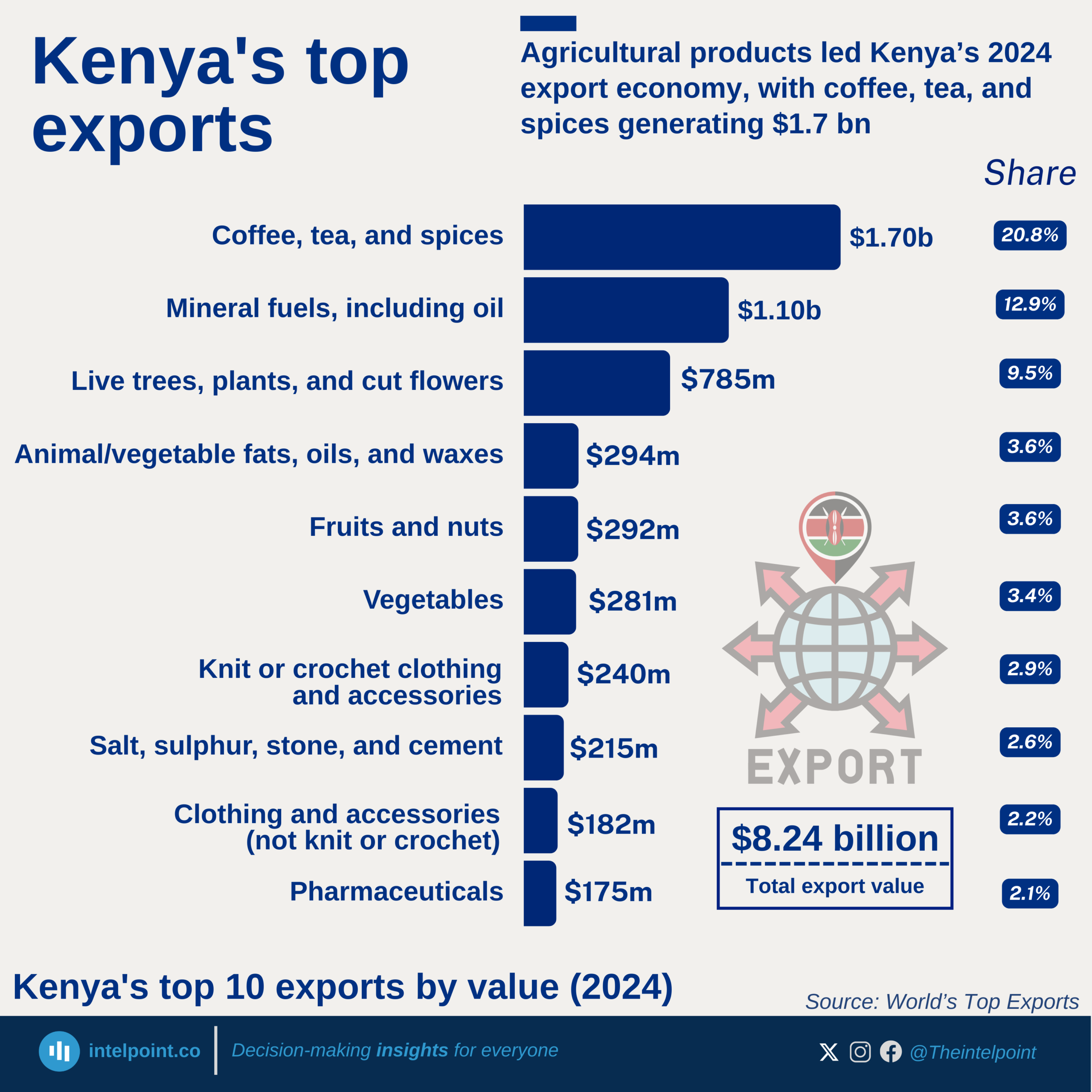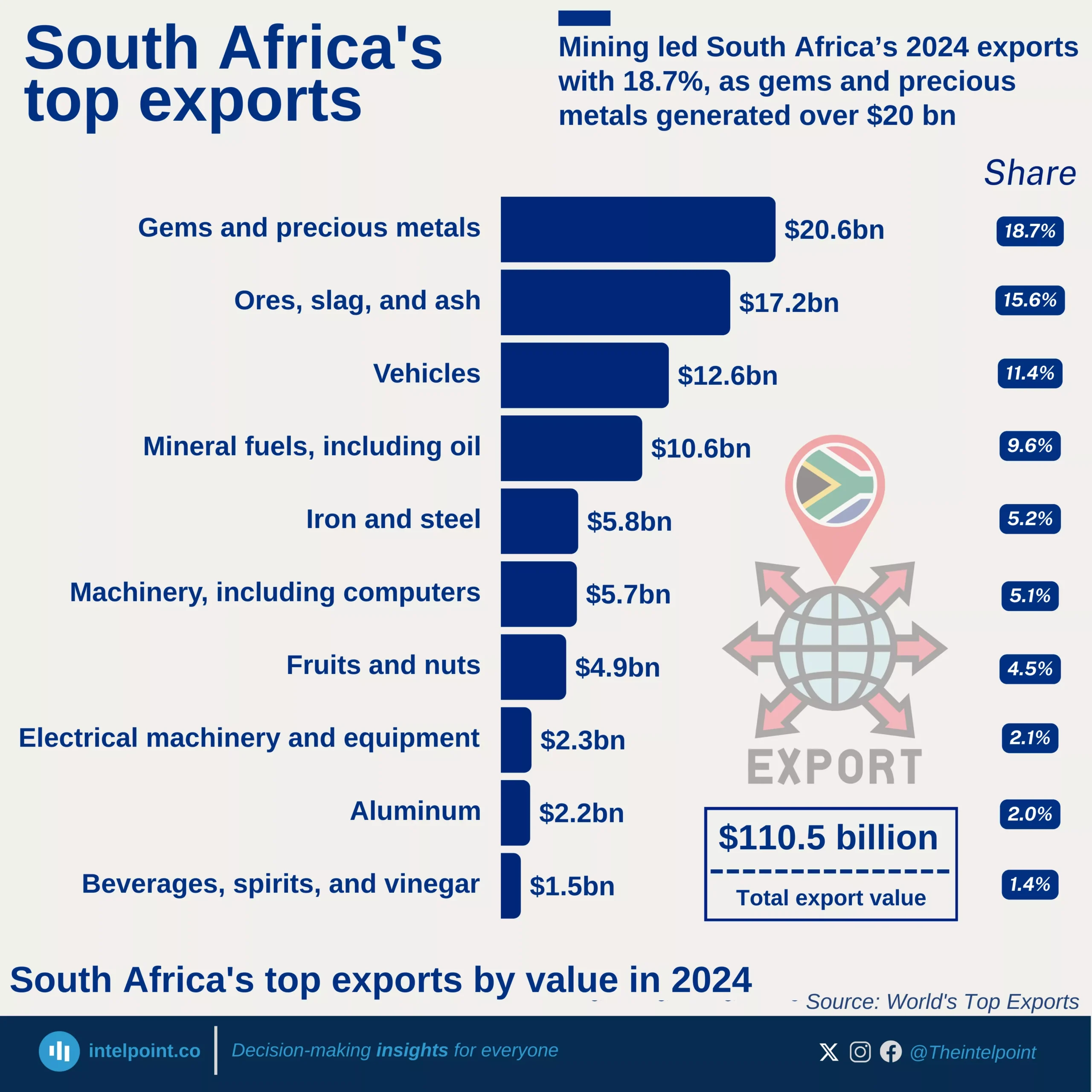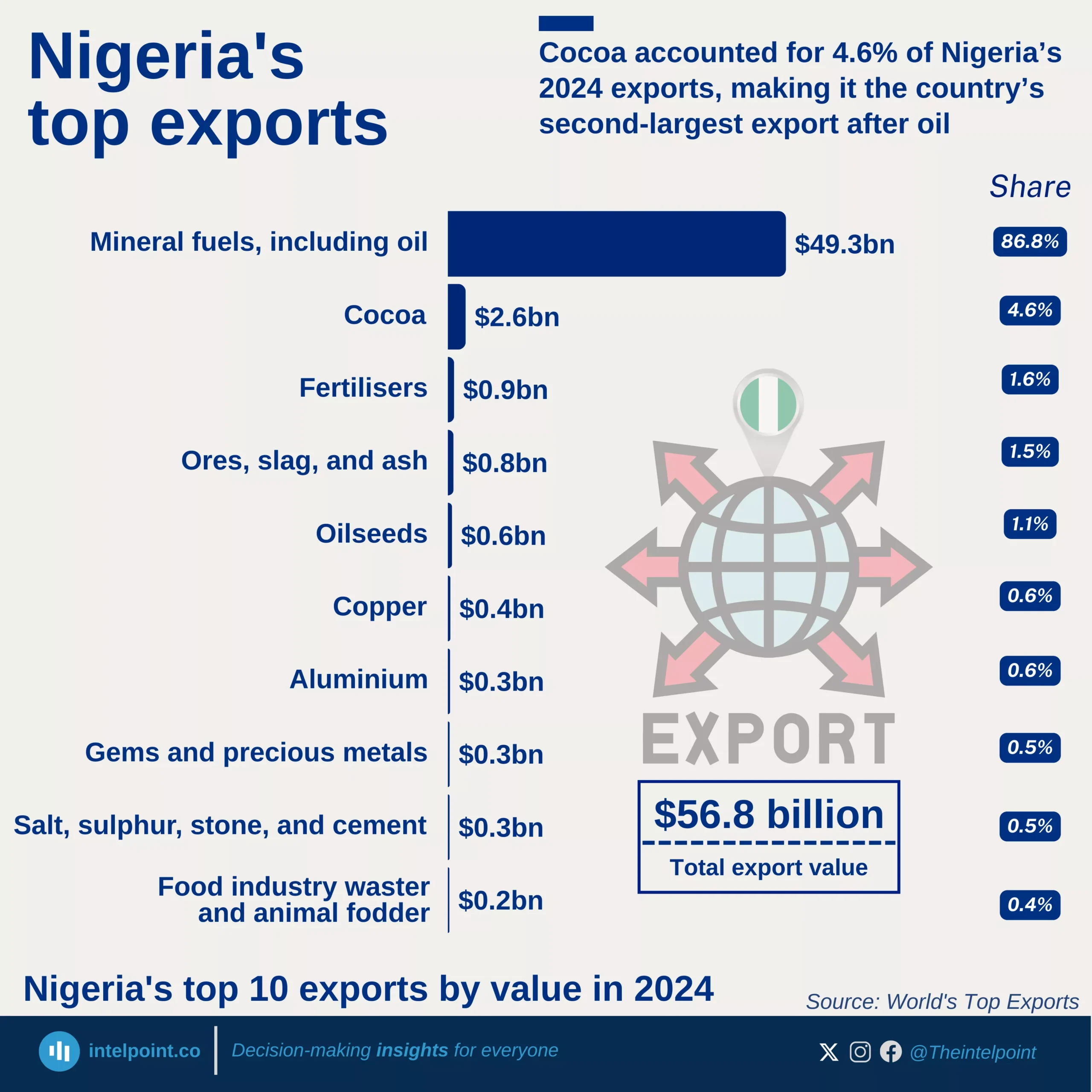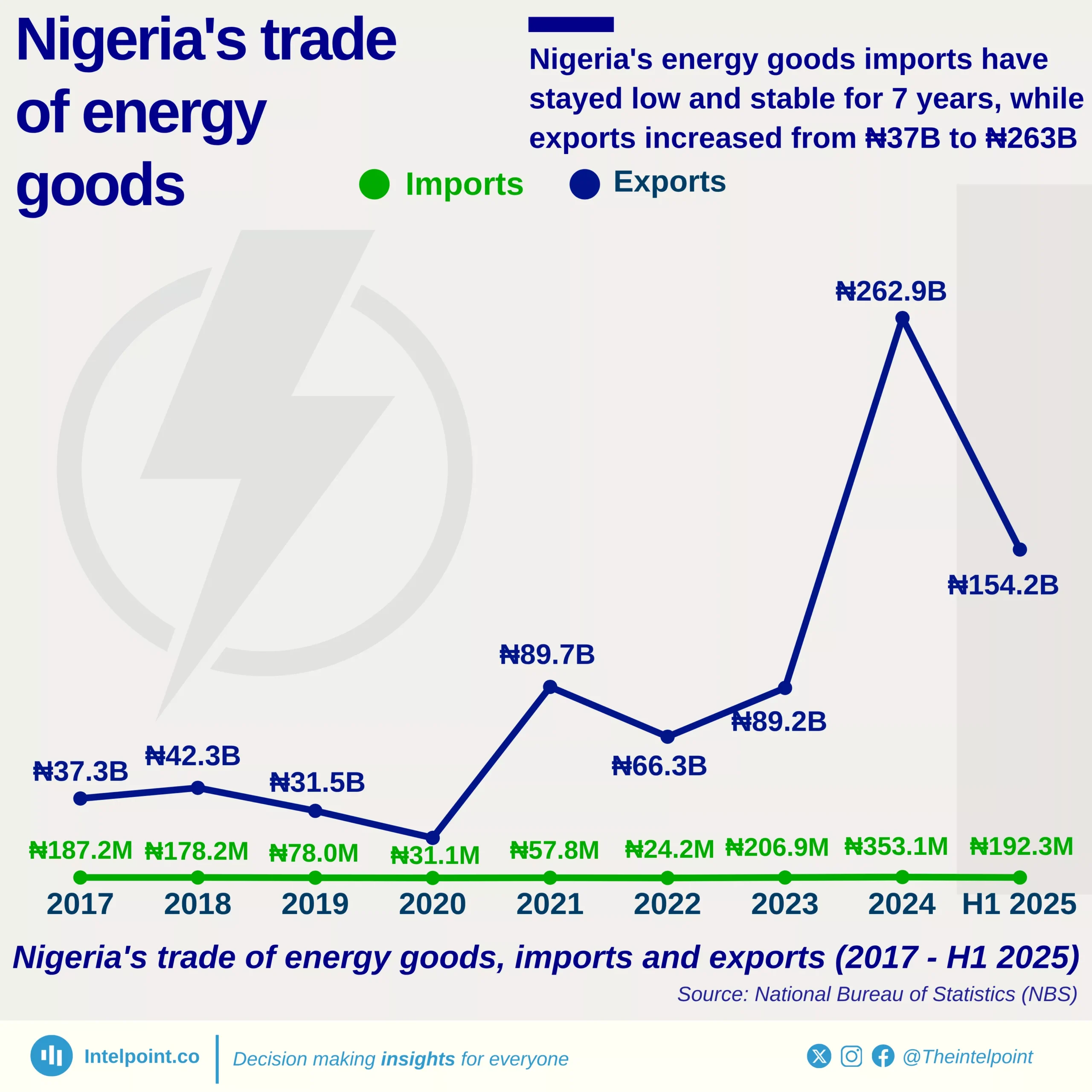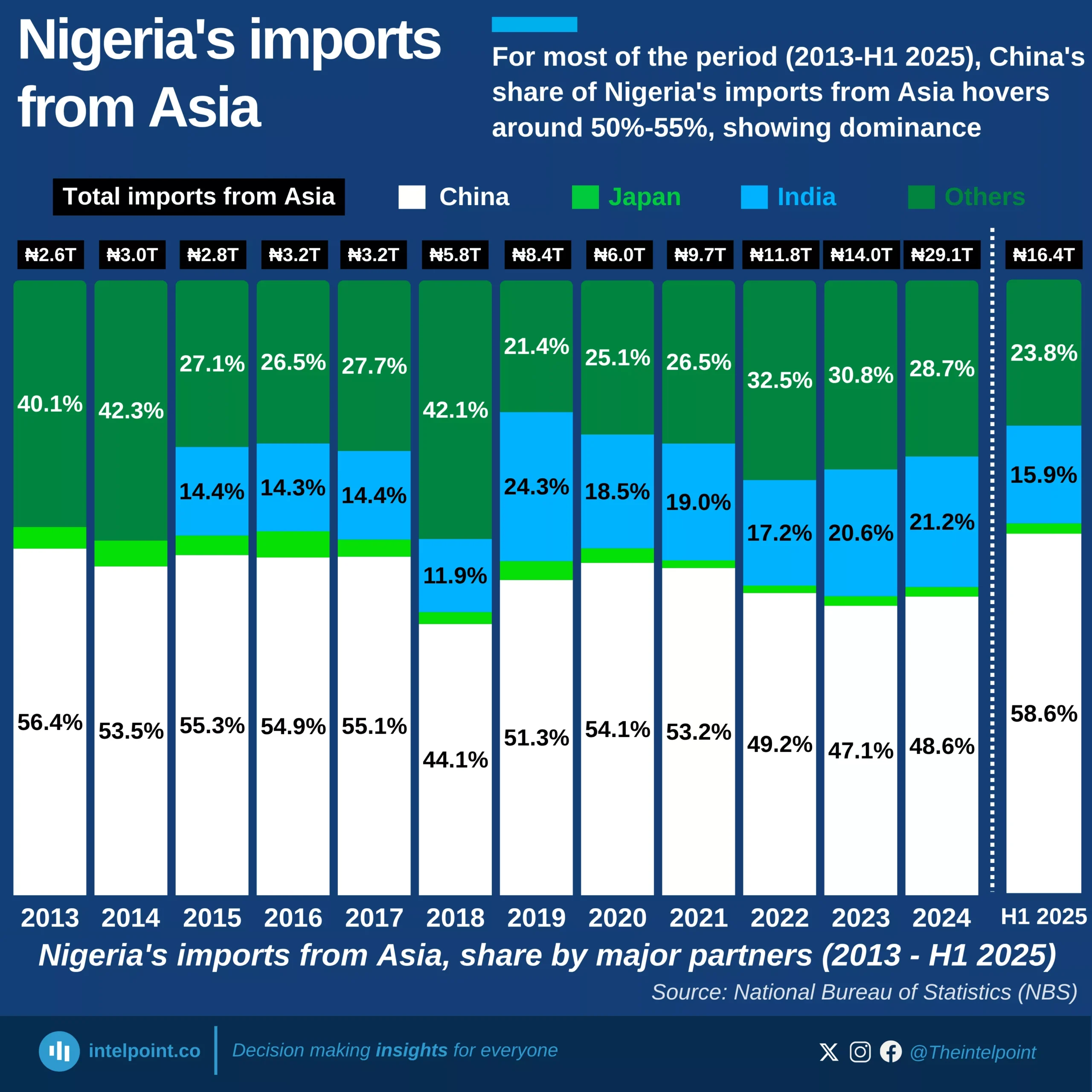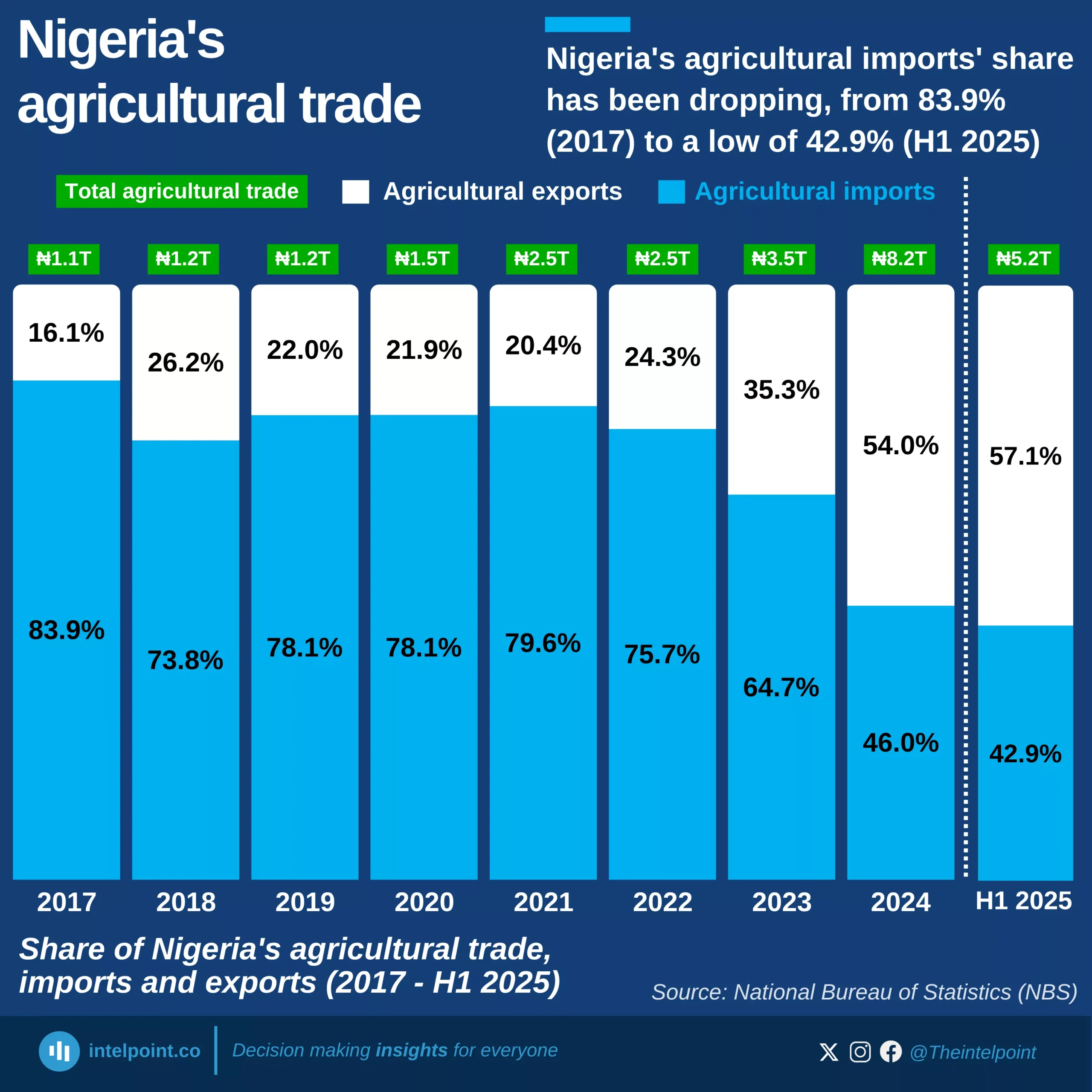Nigeria’s trade relations within Africa have undergone significant shifts in recent years, with imports from ECOWAS countries experiencing substantial growth. The share of imports from ECOWAS countries rose from just 12.0% in H1 2021 to a peak of 39.9% in H1 2024, before easing to 32.4% in H1 2025. This trajectory highlights how regional integration and trade ties have strengthened, despite fluctuations, suggesting that structural or policy challenges may still be at play.
